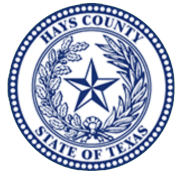Current Public Health Situations
Current Situations
Hays County, Texas – The Texas Department of State Health Services has confirmed an outbreak of rabies in wildlife within Hays County and surrounding areas. Most cases have involved foxes, which are common carriers of rabies in Texas. While there is no imminent threat to human life, rabies is a serious disease that can affect pets, livestock, and humans if exposed.
Hays County officials are working closely with local healthcare and veterinary providers to monitor the situation and ensure readiness. The Health Department is actively coordinating with local medical providers to ensure treatment protocols and resources are in place should human exposure occur.
About Rabies
What is rabies?
Rabies is a disease caused by a virus that attacks the brain and nervous system.
How does rabies spread?
Rabies can be spread by the bite of an animal sick with rabies (also known as rabid) or through the saliva of a rabid animal entering a fresh scratch or similar skin injury. In Texas, rabies is most commonly found in skunks, bats, coyotes, raccoons, and foxes.
How do I protect myself and pets/livestock against rabies?
- Avoid contact: Do not approach, play with, or feed wildlife.
- Rabies vaccination: The best way to protect your pet is to make sure their rabies shots are up to date. Texas law requires all dogs and cats to be vaccinated, and in Hays County, they must get their first shot by 4 months old. Rabies vaccines expire, so your pet will need regular boosters. Your vet will recommend a 1-year or 3-year schedule.
- Secure your pet: Prevent your pet’s contact with wildlife such as skunks, foxes, bats, coyotes, and raccoons. When going on walks in unsecured areas, make sure your pet is on a leash.
- Spay or neuter your pets to protect them from rabies: This procedure makes pets less likely to wander or look for mates, which lowers their chances of meeting wild animals that could have rabies.
- Act quickly if an exposure occurs: If a human or pet is bitten or scratched, wash the wound with soap and water immediately and see a doctor or veterinarian.
What are the signs an animal might have rabies?
Contact local animal control if you observe an animal showing any of the following behaviors:
- Acting strangely – being unusually aggressive or overly friendly
- Seizures – sudden shaking or convulsions
- Trouble moving – weakness, paralysis, or difficulty walking
- Confused behavior – seeming disoriented or not knowing where they are
- Drooling a lot – excessive saliva or foaming at the mouth
Rabies Reporting Information
If you have any questions or concerns about rabies in animals or would like to report animals you suspect of rabies, please call The Hays County Sheriff’s Office Animal Control Division or your city’s animal control authority.
If you see a suspicious animal: call local animal control and be ready to share:
- Exact location
- Time seen
- If it contacted people or pets
- Any unusual behavior
Please find information below regarding local animal control contacts for Hays County.
The Hays County Sheriff’s Office Animal Control Division
810 S. Stagecoach Trail
San Marcos, Texas 78666
512-393-7896
San Marcos Animal Shelter and Animal Services
750 River Road
San Marcos Texas 78666
512-805-2650
City of Kyle Animal Control
Kyle Public Safety Center
1700 Kohler’s Crossing
Kyle, Texas 78640
512-268-3232
City of Buda Animal Control
405 E. Loop Street, Building 100
Buda, Texas 78610
512-312-0084
Health Information for the Public
To protect yourself and your pets/livestock:
- Keep dogs, cats and livestock currently vaccinated against rabies (following state and local rules).
- Keep pets indoors at night (if possible) and supervise them when they do go outside.
- Seek immediate veterinary care for a pet if it comes into contact with a raccoon, skunk, fox, bat, coyote, or other animal behaving in a way indicative of rabies.
- Avoid contact with and feeding of wildlife.
- If you have been exposed to rabies, seek medical care immediately including post-exposure prophylaxis, which is a series of shots that can protect you from rabies.
- Symptoms of rabies in humans include fever, headache, nausea, vomiting, agitation, anxiety, confusion, and difficulty swallowing. Seek care immediately if you are displaying symptoms.
Upcoming Clinics with Free Rabies Shots Available for Pets:
Saturday, January 17
9:00 AM – 12:00 PM
Location: PALS Clinic, 8401 Ranch Rd 12, San Marcos
Dogs must be leashed and cats in carriers. No appointment necessary.
Saturday, January 24
9:00 AM – 1:00 PM
Location: Apollo Veterinary Clinic, Wimberley
Please call ahead so the clinic can prepare for your visit (no formal appointment required).
Health Information for Medical Providers
Please visit this link to the Centers for Disease Control and Prevention webpage for information about patient care for preventing rabies.
Health Information for Veterinary Clinics
Currently vaccinated pets should be revaccinated immediately and restrained (confinement and leashing) for 45 days.
Unvaccinated pets should be vaccinated and placed in a strict isolation for 90 days and given booster vaccinations during the 3rd and 8th weeks of isolation. If that is not possible, unvaccinated pets bitten by a known rabid animal should be humanely euthanized under public health regulations.
Vaccination is the best way to prevent this tragic outcome.
Partner Agency Sites
Texas Department of State Health Services
Centers for Disease and Infection Control
Quick Links
RESOURCES









